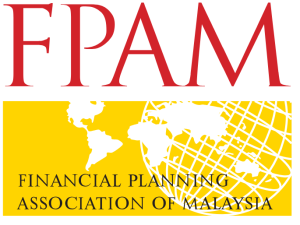
#FinPlan4U Bersama InvestSmart® at Johor 17-19 May 2024
August 29, 2024
A Memoriam to Edwin P. Morrow II
September 4, 2024Future-Proofing Financial Planning
Chris Tse, Chairman of the Institute of Financial Planners of Hong Kong (IFPHK), shares his insights on the key challenges and opportunities facing the financial planning industry in Hong Kong, and how the profession needs to evolve to meet changing consumer needs and technological disruption.
By Jeannie Cotter
The world of personal finance and wealth management is undergoing seismic shifts, driven by changing consumer demands, technological disruption and generational handovers of staggering fortunes. According to HSBC Bank, Asia’s wealthy baby boomers will pass on around US$1.9 trillion to future generations soon. This unprecedented intergenerational wealth transfer positions the financial planning profession at a critical inflection point, necessitating proactive adaptation and strategic foresight to effectively navigate the evolving landscape.
Navigating this transformational era will require a new breed of forward-thinking, tech-savvy advisors capable of holistically tailoring customised strategies to each client’s unique goals and circumstances. At the forefront of redefining the industry for the future is Chris Tse, Chairman of the Institute of Financial Planners of Hong Kong (IFPHK), who offers insights into the mounting challenges and immense opportunities facing financial planners in one of Asia’s preeminent wealth hubs.
One of the core goals of the IFPHK, according to Tse, is to increase the number of CFP practitioners among young people in Hong Kong. “We aim to nurture future talents for the city’s financial services industry,” he explains. This is seen as increasingly vital given the ‘brain drain’ Hong Kong has experienced in recent years, with many skilled professionals emigrating overseas.
However, convincing millennials and Gen Z to pursue careers as financial planners is an uphill battle. Tse points to a global trend of younger generations being less inclined to dedicate themselves to a single lifelong profession. “Many are more eager to work as ‘slashers’ with multiple side gigs, which raises questions around professionalism,” he says. “Can consumers really trust financial advice from someone working part-time?”
The IFPHK is tackling this challenge head-on through outreach efforts emphasising the importance of accredited, full-time professional financial planners—a necessity given the immense intergenerational wealth transfer expected globally as baby boomers pass their assets to millennials in the coming decades. “Do we need much older financial advisors, or should we be hiring more young talents to help manage this massive generational wealth transfer?”
Meeting Evolving Consumer Needs
To stay relevant, financial planners must adapt to fundamental shifts in consumer behaviour and priorities. Tse highlights the growing demand from mainland Chinese clients for offshore wealth management solutions, driven by a ‘negative wealth effect’ onshore with property and stock market declines.
Sustainable and ESG (environmental, social and governance) investing is also an area gaining traction worldwide, though Tse believes Asia still has a long way to go compared to Europe and North America. He suggests emerging markets may be prioritising only the environmental aspect rather than the social and governance aspects.
Meanwhile, appetite for crypto investing is soaring among the millennial/Gen Z demographic. Tse reveals that almost half of the Gen Y respondents to an IFPHK survey who invest in crypto are doing it for long-term growth opportunities. The IFPHK advises financial planners to tread carefully with crypto while seeking to educate clients on risks and strategies like diversification. As Tse cautions, “It doesn’t mean they really understand it, just because there’s consensus to overweight crypto assets.”
Overcoming Industry Fragmentation
A major roadblock for developing a robust financial planning profession in Hong Kong is the territory’s fragmented, product-based regulatory regime. Unlike markets with dedicated financial planning licenses, in Hong Kong, practitioners require separate licenses for investments, insurance, retirement products and more.
“We don’t have any financial planning licences,” laments Tse. “Someone with just an insurance broker license can claim to be a financial planner. It’s not against the law.”
The IFPHK continues advocating for an overarching credential and highlights the CFP certification as a key professional benchmark for holistic financial advice. However, Tse doesn’t anticipate a seismic shift anytime soon; regulators are likely to gradually raise minimum qualifications to avoid disrupting existing practitioners.
The Impending Role of AI and Fintech
While artificial intelligence (AI) and fintech solutions could make advisors’ lives easier through automation, Tse insists human expertise will remain paramount for tailoring advice to each client’s unique circumstances.
“Even before AI, model financial plans became like templates adopted across firms. Why not just hard-code that into AI?” he asks. “But it doesn’t negate the need for human interaction to truly understand each client’s goals and situation.” Tse gives the example of tailoring inheritance planning based on family dynamics, intended heirs, religious beliefs and other nuanced considerations AI cannot replicate. “At the end, would you trust a robot to manage your retirement planning for your whole life?”
Similarly, fintech may streamline client onboarding and transactions, but face-to-face relationships are ‘a must’ given the personal nature of financial planning.
Outlook for Investing in Hong Kong
Looking at investment trends impacting Hong Kong investors, Tse notes the territory’s own equity market has languished for two decades, with the Hang Seng Index lately hovering around levels from 20 years ago. In contrast, US markets have gone from record high to record high over this period.
As a result, there has been an increasing trend for Hong Kongers to invest in global stock markets, particularly US stocks, via rapidly proliferating online brokers. This is a pattern mirrored across Asia amid stagnant or underperforming local exchanges.
At the same time, Tse argues, “Don’t expect a big bubble in US markets, as global investment portfolios held by pensions, sovereign wealth funds and others are now so globally diversified that any market crash would reverberate worldwide. The primacy of US financial markets and the US dollar’s status as the global reserve currency remain intact.”
Overall, the future of financial planning will require a new generation of forward-thinking, tech-savvy practitioners capable of offering truly holistic advice tailored to each client’s situation and risk appetite. “We need to nurture much more young talent to build a sustainable membership for the long term,” says Tse. “The trends transforming investing and wealth management mean the profession must also transform to thrive.”
Crypto: Fad or Future?
While sustainable investing builds slowly, crypto mania shows no signs of abating among younger investors. “It seems crypto allocation is becoming the default, though many don’t fully understand concepts like ‘halving’,” he cautions. “Beware of simply chasing past returns without considering other factors.”
The reputational baggage of cryptocurrencies also can’t be ignored. Tse recounts his own unfortunate experience—being forced to pay a Bitcoin ransom after his home server was hacked. “It resulted in my participating in crypto in the worst possible way,” he laments. “Originally, crypto assets had a very poor reputation for enabling criminal activities like money laundering and ransomware attacks.”
However, increasing regulatory acceptance and new crypto investment vehicles could help legitimise the asset class. While the recent approvals of Bitcoin ETFs in the US and Hong Kong have helped legitimise crypto in the public eye, Tse clarifies that global regulators are more receptive to centralised stablecoins representing a bridge between fiat and crypto currencies, rather than decentralised cryptocurrencies themselves.
“They are not looking at crypto or blockchain. Regulatory bodies are looking at stable coins—sort of a hybrid between fiat and crypto. China is already piloting a digital yuan in that vein.” For crypto to shed its shadowy origins, Tse believes more emphasis is needed on financial education and understanding the fundamentals instead of blindly chasing trends. “We need to organise more workshops to change investor attitudes and behaviours around crypto—not just lecture-style education.”
Whichever way the crypto craze evolves, the rise of digital currencies and fintech solutions is inevitable, he notes. “Hong Kong and China are already miracle examples of going completely cashless and mobile-first for payments. Digitalising the monetary system is the next logical step.”
While the long-term fate of Bitcoin or Ethereum remains to be seen, fintech disruption is certain to revolutionise personal finance and investment. Future-ready financial planners must be prepared to integrate tech-enabled services, while maintaining human skills in holistic, tailored advice delivery.
Demystifying the Sustainability Lexicon
One area where financial planners must enhance their expertise is the rapidly evolving lexicon surrounding sustainable investing and environmental, social and governance (ESG) factors. As Tse explains, many of these overlapping concepts can sow confusion among advisors and clients alike.
“To the average retail investor or general public, ESG is still a new and unfamiliar topic,” he notes. “But it really shouldn’t be so novel—these principles have very longstanding roots.”
Tse breaks down the nuances between common sustainability terms like corporate social responsibility (CSR), ESG, sustainable investing and climate change: “CSR is mainly from the listed company’s perspective, focused on their operations and compliance. But ESG can be viewed from both the company side and the investor perspective when evaluating potential investments.”
“Sustainable investing implies taking concrete action and actually making investments aligned with sustainability principles. And climate change has the broadest universal impact, affecting all stakeholders in society—not just shareholders.”
He further distinguishes between the roles of ESG and the UN’s Sustainable Development Goals (SDGs): “ESG ratings serve as a performance metric for sustainable investments, while the SDGs are more of an impact metric, measuring how those investments positively influence society.”
According to Tse, financial planners must develop fluency in this sustainability terminology to effectively navigate client conversations and portfolio strategies. Clients are increasingly attuned to these issues and expect advisors to speak the same language.
“Even if people use terms like CSR interchangeably, financial planners need to understand the precise definitions and contexts,” he advises. “Once you are clear on the acronyms and what they truly represent, you can have more insightful dialogues and develop appropriate solutions for each client’s sustainability goals.”
Building this sustainability lexicon from the ground up may seem daunting. However, by embracing continuous education and committing to holistic client service, financial planners can position themselves as trusted advisors for sustainable wealth in the decades ahead.
Attracting & Retaining the Next Generation
To ensure the profession’s long-term viability, the IFPHK is focused on attracting more millennials and Gen Z into the financial planning ranks. As Tse acknowledges, “Wealth will be in the hands of these younger generations very soon. We need their influence over peers to promote financial planning as an exciting career path.”
However, the industry’s entrenched traditions and an ageing workforce have made it less appealing to many young talents seeking flexibility. “In the past, young people perceived it as an ‘old’ profession—dominated by older individuals with traditional mindsets rigidly requiring daily on-site work,” recounts Tse.
Recognising these concerns, Tse advocates incorporating modern work arrangements like remote options and digital collaboration tools. He cites Hang Seng Bank’s ‘Future of Work’ policy allowing two weekly work-from-home days as a model for improving retention, especially among working parents needing flexibility.
“Everyone has different lifestyles and obligations, like caring for children or family members with intensive needs,” he explains. “Offering that kind of work-life balance is key for keeping experienced professionals engaged long-term.” Indeed, retaining experience and institutional knowledge is critical amid Hong Kong’s vexing talent drain. Tse recounts his own early career motivation from a high-earning mentor living in Hong Kong’s prestigious Mid-Levels neighbourhood.
“He showed me the lucrative rewards possible in this industry if you put in the hard work,” he reminisces. The irony today is that major firms are laying off seasoned veterans to cut costs, due to rising US-China tensions impacting their regional operations. “Those with 20-25 years’ experience are expensive hires, so sadly, we’ve seen many let go in recent years,” says Tse.
To nurture the next generation of financial planners, the IFPHK proposes reimagining the traditional career paradigm that demands an all-or-nothing commitment. By fostering workplace flexibility while upholding rigorous standards of full-time professionalism, the industry could resonate more effectively with young recruits seeking a better work-life balance.
As Tse advises, “We need to preserve our professional image and ethics while adapting workplace flexibility and cultures to align with how millennials want to pursue careers and lives. If they can’t proudly embrace financial planning as their core occupation, clients won’t be able to fully trust the advice.”
Securing the Future Through Talent and Integration
As Tse looks to the IFPHK’s future, his overriding priority is clear: developing a new generation of young, talented financial planners to sustain the profession long-term. “Over the past few years, we have faced a lot of changes—the pandemic, social unrest in Hong Kong and an exodus of members immigrating to places like Singapore and London,” he reflects. “At the end, we found that we needed to nurture much younger talents. This remains one of my major goals for the IFPHK.”
Hong Kong’s evolving relationship with mainland China also factors prominently in the IFPHK’s strategic vision. “From the government’s perspective, they want to see much more collaboration between Hong Kong and China,” says Tse. “We are working with our China chapter more closely than before, aiming to hold seminars in the Greater Bay Area instead of just Hong Kong. More than half of our members’ clients are coming from China.”
To facilitate this cross-border integration and develop a sustainable talent pipeline, the IFPHK is actively supporting Hong Kong’s new policies for attracting skilled professionals from across Asia. “They haven’t clearly dictated what professionals would qualify for immigration, but being a CFP professional is definitely a consideration,” notes Tse. “We’ve already seen cases of CFP professionals from our China chapter successfully obtaining Hong Kong residency by highlighting their qualifications and reciprocal recognition here.”
Through fostering closer ties with mainland China and prioritising youth outreach alongside modern workplace strategies, Tse hopes to position the IFPHK for continued leadership in the decades ahead. By bridging generational and cultural divides, the Institute can empower financial planners to deliver truly tailored, holistic advice transcending borders. As the unprecedented wealth transfer to millennials accelerates, developing future-ready expertise will prove crucial for the profession’s enduring relevance.
This article was originally published in the July/August 2024 issue of The SmartInvestor magazine.


